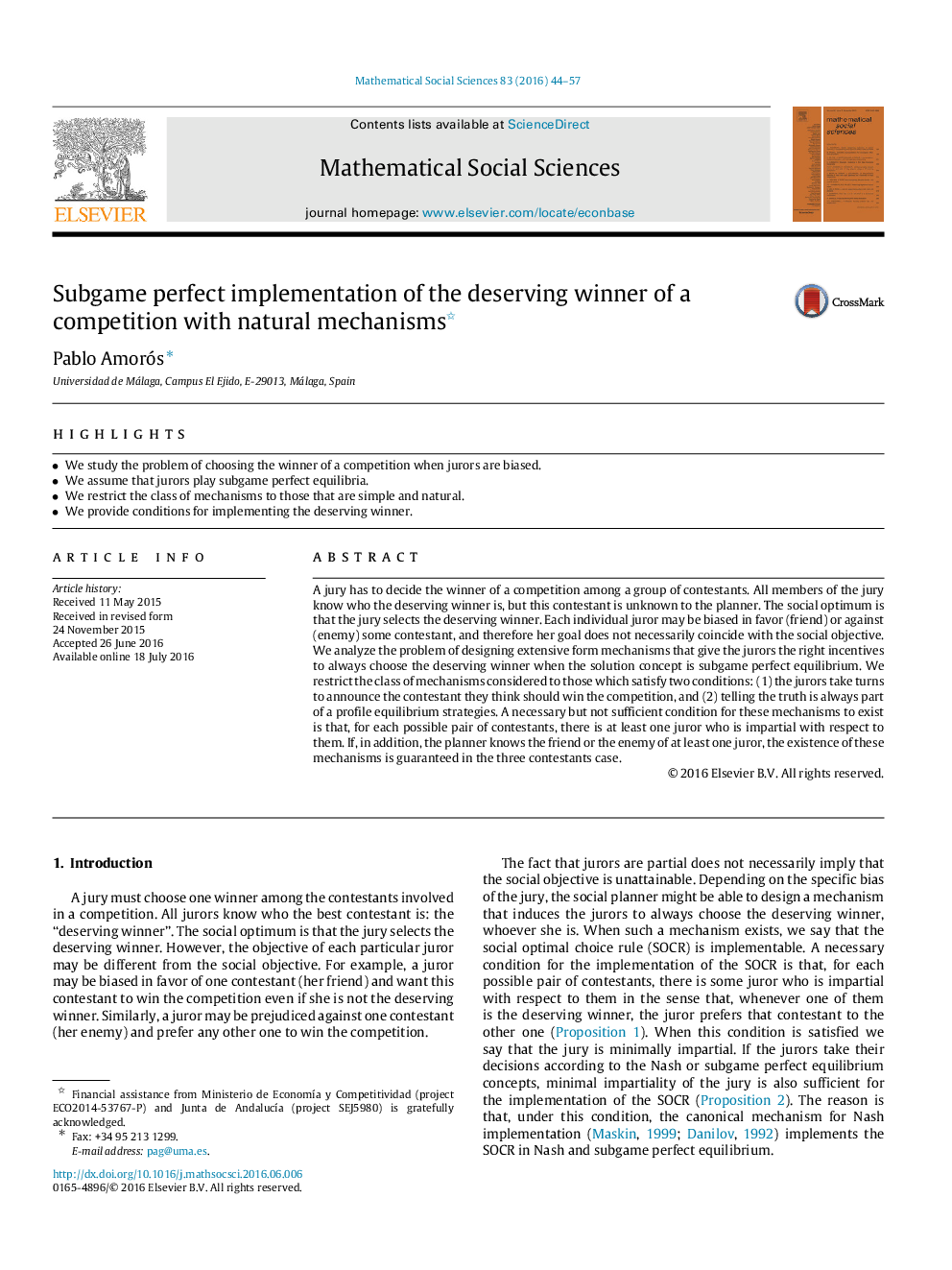| Article ID | Journal | Published Year | Pages | File Type |
|---|---|---|---|---|
| 7373295 | Mathematical Social Sciences | 2016 | 14 Pages |
Abstract
A jury has to decide the winner of a competition among a group of contestants. All members of the jury know who the deserving winner is, but this contestant is unknown to the planner. The social optimum is that the jury selects the deserving winner. Each individual juror may be biased in favor (friend) or against (enemy) some contestant, and therefore her goal does not necessarily coincide with the social objective. We analyze the problem of designing extensive form mechanisms that give the jurors the right incentives to always choose the deserving winner when the solution concept is subgame perfect equilibrium. We restrict the class of mechanisms considered to those which satisfy two conditions: (1) the jurors take turns to announce the contestant they think should win the competition, and (2) telling the truth is always part of a profile equilibrium strategies. A necessary but not sufficient condition for these mechanisms to exist is that, for each possible pair of contestants, there is at least one juror who is impartial with respect to them. If, in addition, the planner knows the friend or the enemy of at least one juror, the existence of these mechanisms is guaranteed in the three contestants case.
Related Topics
Physical Sciences and Engineering
Mathematics
Applied Mathematics
Authors
Pablo Amorós,
